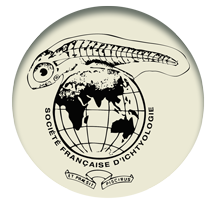Factors affecting the distribution of freshwater fishes especially in Italy
Factors and events affecting the dispersion of native freshwater fishes in Italy and other peri-Mediterranean countries are investigated by analyzing their original distributions. Present day ranges are the result of several factors including the ecology of the species and the palaeoecology and palaeogeography of the area. Main routes of dispersion for primary (sensu Myers, 1938), cold-adapted riverine fishes were probably by river captures, while warm-water reverine and lacustrine species spread as a result of confluences in lowlands. In Italy, several cold-adapted riverine species are shared with the Danubian district and are assumed to be of Pleistocene origin. Most endemics, with small ranges and sometimes shared with the western Balkans, belong to the category of warm-water reverine or lacustrine species. Some of those have probably been isolated since the Middle Miocene (10-15 Ma), others penetrated Italy during the Messinian “Lago Mare” phase of the Mediterranean (5 Ma). Present distribution patterns seem the result of glacial-time events. The last glacial, Würmian, Po extended phase (15-18,00 YBP), played a major role in dispersion into Italy and exchanges with the western Balkanic district. However, human interference with fishes, especially during the last 60-80 years, has obscured the original ranges and the faunal compositions of every river basin.


